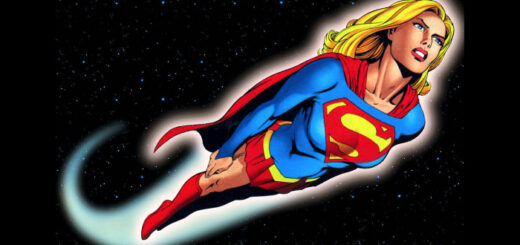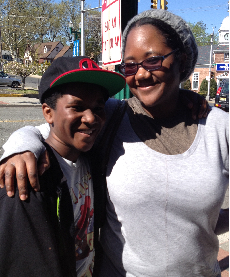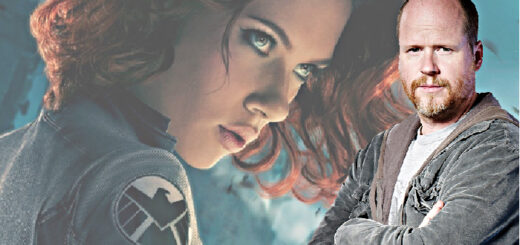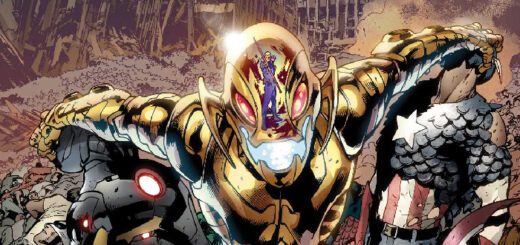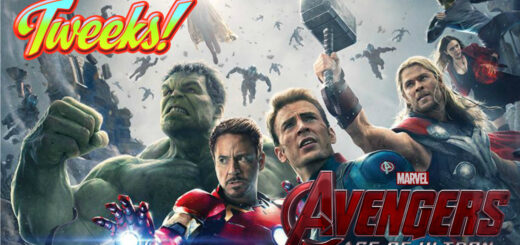Yesterday – well, two days ago, since you’re reading this on Monday – I was listening to Ira Glass and “This American Life” on NPR. The subject? Superpowers.
Mr. Glass interviewed Chris Ware, cartoonist and author of the graphic novel Jimmy Corrigan, The Smartest Kid On Earth, beginning with the start of Mr. Ware’s fascination with superpowers and his quest for obtaining them:
Chris Ware: “I mean, unquestionably, I was by far the most loathed member of my class, I think, being a pasty, unathletic kid who was weird looking and probably seemed overly eager. And I had friends that would come over on the weekends to play. But then at school, they would ignore me and pretend like they didn’t know me.”
While it’s true that very few adults look back on their school years with love and affection – especially the high school years – I do think that most of us who were geeks before it was cool can entirely empathize with Mr. Ware and his escape into the world of wonder and four-colors. And I wouldn’t be surprised if, before this modern era of easily accessible fanfic on the web, many of us wrote stories that we didn’t show to anyone, hiding them under our beds or deep in the darkness of our desk drawers. Or, like Mr. Ware, spent hours drawing the superheroes and adventurers of science fiction and fantasy.
And didn’t we all dream of actually having ultra-human capabilities – of finding a hammer in a cave that transformed us into a Norse god of legend, of discovering that we were actually the last survivor of a long-gone planet in another star system so that we had abilities far beyond those of mortal men, of being the inheritor of a mutant gene that enabled us to read other people’s minds? Didn’t we think that if we jumped high enough and hard enough we would never come down?
Like us, Mr. Ware wondered if he could find a radioactive spider like the one that bit Peter Parker. Like us, Mr. Ware spent hours drawing superheroes. And then there was Mr. Ware’s experience in the shower:
“There was one morning where I was standing under the shower. And of course when you get in, immediately, because you’re so cold, the water is extremely hot by contrast. So you have the cold water turned up. And as you stand in there, you get used to it. And you turn the cold water down.
“And I was in there for a very long time. And I remember turning the cold, and it wouldn’t go any farther. And I thought, that’s weird. It must be stuck. And I turned it more. And it wouldn’t go any farther.
“And I realized I was standing under completely hot water. But it felt fine to me. It actually felt warm, almost cool. And the longer I stood there, it felt cooler and cooler.
“And the only explanation I could come up with is that I had developed the ability to withstand extraordinary heat.
“Of course, we’d just run out of hot water. But at that time, I didn’t know that that happened. I thought hot water was an endless commodity.”
As a kid I used to believe that if I stared long enough at a wall I would “turn on” my secret X-ray vision; sometimes I would lay I on my back and stare up into the sky, trying with all my will to see beyond Earth’s atmosphere into outer space with my telescopic vision. And, as I talked about in a previous column, my favorite dream as a child was the one in which I went to my Aunt Ida’s toy store to pick out a costume for Halloween…and the Supergirl costume that I picked actually imbued me with the powers and abilities of my favorite Kryptonian.
But if the powers-that-be decided to grant you one super-power, and that super-power was either invisibility or flight, which would you choose?
This was the question that Mr. Glass’s colleague, John Hodgman, asked the man and woman “in the street.”
The answers were not in the least heroic:
Man: “If I could fly, the first thing I would do is fly into the bar. Check out what’s going on there. Fly back home. I would attach my baby to me and fly to a doctor’s appointment at 11:30. Fly right back. Then I think I would fly to Atlantic City.”
Woman: “[if I had the power to be invisible] I’d go into Barneys (a very chi-chi New York clothing store with prices so high you need flight just to read them). I’d pick out the cashmere sweaters that I like. I’d go into the dressing room. The woman says, how many items? I say five. I go into the dressing room. I put those five sweaters on.
“And I summon my powers of invisibility in the dressing room. I turn invisible. I walk out, leading her to wonder why there’s a tag hanging from the door that says five and no person inside.”
John Hodgman: “So you would become a thief pretty quickly.”
“Immediately. Until I had all the sweaters that I wanted. And then I would have to think of other things to do.”
No one said that he or she would destroy the world’s nuclear arsenals, bring peace to the Middle East, or fight crime. Instead, they would use the power of flight to save on commuting costs, or use their invisibility to sneak into movies or airplanes.
It seems that the contract to obtain a superpower doesn’t include a morality clause. But before signing there is a lot of negotiation:
Man: “Now, when you’re flying, if you’re flying at 1,000 miles an hour at 100,000 feet, are you comfortable? Do you get very cold?
“[or] Let’s say I’m in this room, and I’m invisible. And I’m walking around this apartment, and I’m invisible. Do I have to be completely quiet, or you guys will like, hear my footsteps? Because that’s a pain in the ass.”
Yep, that’s the American way! Look for the loopholes!
It turns out that that in this – granted, very unscientific – survey there is gender bias to choosing, because, overall, men go for flight, women for invisibility. Is this a product of our society, in which men are taught to be bold and aggressive, and women encouraged to be not to make a scene? I don’t know. Neither Mr. Glass nor Mr. Hodgman specified the ages of the participants. My guess is that the older adults, raised in a more conservative (read: sexist) society, would follow the pattern, while the younger adults, raised in a more open culture in which they are “free to be you and me” (to quote Marlo Thomas), would be more difficult to assign an expected role.
I asked Alix and Jeff which they would choose.
Jeff: “Invisibility.”
Alix: “Invisibility.”
Well, both are way more practical than me; both immediately said that invisibility would be the more useful of the two – though Jeff added that he has a friend who would definitely choose flight.
Hodgman described what he calls “The Five Stages of Choosing Your Superpower.” The first is called the Gut Reaction:
Responder: “Initially, I would think perhaps invisibility.”
Stage II: Practical Consideration:
“Because you have the ability to walk around work, perhaps. Show up at one point and perhaps go away for a little while and turn invisible. And then come back and listen to what they say about you. You have the power to spy on your exes. And that would all be enlightening and fun and, in fact, a little bit perverted.”
Stage III: Philosophical Reconsideration.
“That would – I believe it would immediately turn into a life of complete depression. You wouldn’t be able to really share with anyone. And I know there’d be some problems with, like, the perversion thing.”
Stage IV: Self-Recrimination:
“Invisibility leads you– leads me, as an invisible person, down a dark path. Because you’re not going to want to miss out when you’re invisible. No matter how many times you’ve seen a woman naked in the shower, you’re going to want to see it again. Because there’s always a different woman. Right? And there’s, like, a lifetime of that. And that’s not acceptable behavior, no matter whether you’re invisible or not.”
Stage V: Acceptance.
“Yeah, I’d have to go with flight.”
As Mr. Hodgman pointed out, and I agree with him, the choice indicates the dichotomy of our inner selves. We all want to be heroes, we all want to be gallant and overt and looked up to, we all want to fly. But down here on the ground, we are all secretly afraid and covert and selfish, we all want to those “bad” parts of us to be invisible.
As one respondent said:
“Flying is for people who want to let it all hang out. Invisibility is for fearful, crouching masturbators.”
Hey, almost everybody masturbates.
But I want to fly, as well.
Up, up, and awaaaaaaay!

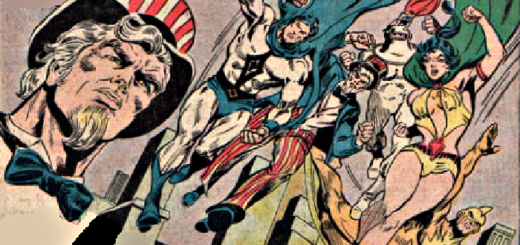

 It was easy to deduce that no one involved believed that Hot Pursuit was a good movie. Reese Witherspoon is fresh off an Academy Award nomination for Wild, Sofia Vergara stars in a TV show widely credited, however accurately, as reviving the sitcom, and, if internet coverage is any indication, people are clamoring for comedies with predominately female leads. If Hot Pursuit were any good at all it would get a big release at a time where it could do big business, not thrown in the wake of Avengers: Age of Ultron where it will sink anonymously. You can know before you see it that Hot Pursuit is a bad movie, but even that might not prepare you for just how drab and boring it truly is.
It was easy to deduce that no one involved believed that Hot Pursuit was a good movie. Reese Witherspoon is fresh off an Academy Award nomination for Wild, Sofia Vergara stars in a TV show widely credited, however accurately, as reviving the sitcom, and, if internet coverage is any indication, people are clamoring for comedies with predominately female leads. If Hot Pursuit were any good at all it would get a big release at a time where it could do big business, not thrown in the wake of Avengers: Age of Ultron where it will sink anonymously. You can know before you see it that Hot Pursuit is a bad movie, but even that might not prepare you for just how drab and boring it truly is.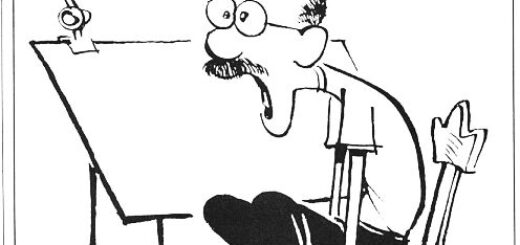
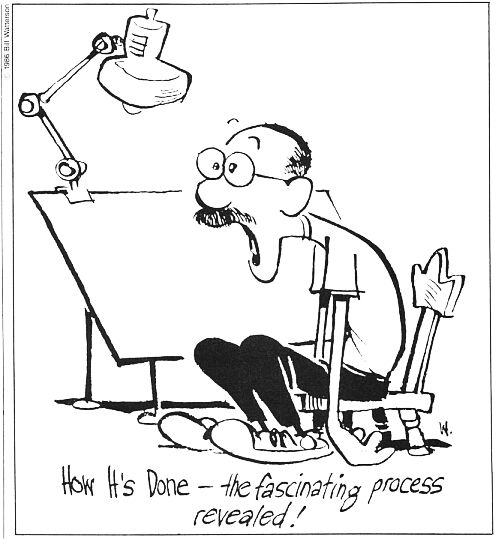 I just returned from a week’s vacation out in the sort-of-middle-of-nowhere, and it was glorious. Being my first long non-family or -convention-related vacation in ten years, it gave me some much needed down time to, e.g., work on my non-journalistic writing (along with spending time with a wonderful friend and meeting new friends, reminding myself anew of how terrible I am at watercolor painting, reading the exceptional journalistic work of Ernie Pyle, getting a tad bit in shape, listening to excellent music really loudly through gorgeously immense speakers, stepping out into the sun more than I usually do in my office-bound work, and, you know, actually relaxing a bit).
I just returned from a week’s vacation out in the sort-of-middle-of-nowhere, and it was glorious. Being my first long non-family or -convention-related vacation in ten years, it gave me some much needed down time to, e.g., work on my non-journalistic writing (along with spending time with a wonderful friend and meeting new friends, reminding myself anew of how terrible I am at watercolor painting, reading the exceptional journalistic work of Ernie Pyle, getting a tad bit in shape, listening to excellent music really loudly through gorgeously immense speakers, stepping out into the sun more than I usually do in my office-bound work, and, you know, actually relaxing a bit).